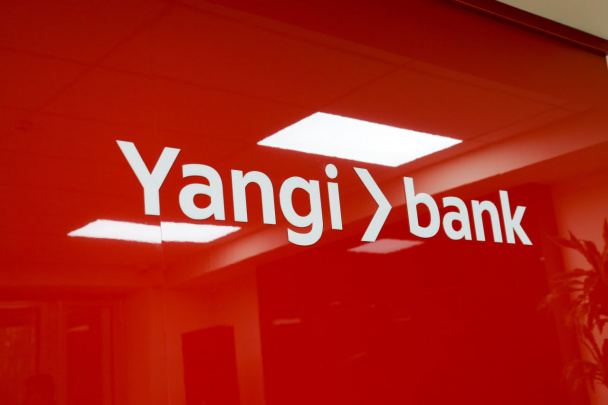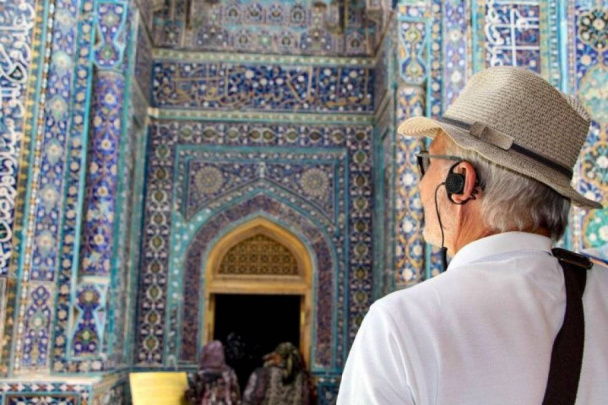New Umrah licensing rules raise concerns of monopoly and rising costs in Uzbekistan
The government of Uzbekistan has introduced stringent new requirements for Umrah pilgrimage licenses, mandating a $1 million reserve deposit for tourism agencies. The decision has sparked concerns among local tour operators who fear that the new conditions may lead to monopolization within the industry. Kun.uz discussed these changes and their implications with Sherzod Sami and Farhod Hashimov, prominent figures in Uzbekistan’s tourism sector.
License Conditions and the Fear of Monopoly
The announcement, made on October 12, 2024, includes several new regulations for companies facilitating Umrah pilgrimages. The Committee on Religious Affairs, the organization responsible for the new licensing guidelines, has imposed what some see as restrictive conditions, which has led to widespread apprehension among stakeholders. The primary concern voiced by industry experts is that the sector might revert to a monopolistic model, limiting options for citizens and stifling competition.
“Neighboring countries’ tour operators are pleased, as they may soon attract Uzbek pilgrims,” said Sherzod Sami, a tour company head. “Our Saudi partners were shocked by the $1 million deposit requirement. This condition might block many businesses from obtaining the necessary licenses.”
Sami also highlighted the problematic nature of recent government policies, suggesting that the Umrah industry is facing punitive measures due to a scandal in 2023, when 19,000 pilgrims were stranded in Saudi Arabia due to complications with Panorama Airways. This incident led to significant losses for travel agencies and was a contributing factor in the tightening of regulations.

Stringent Requirements and Potential Consequences
The government’s new guidelines stipulate that tour companies must provide three-star accommodations for pilgrims and pre-purchase round-trip flight tickets. While some operators see the value in these requirements, they worry about the added financial strain and increased consumer costs. Hashimov commented, “These requirements may prevent unlicensed agencies from operating, but they will raise expenses, which will inevitably be passed on to consumers.”
The licensing requirements also ban operators from providing services through third-party entities, potentially limiting route options for Uzbek pilgrims. “It seems that only direct flights to Saudi Arabia are now allowed, with resident airlines receiving preferential treatment,” said Sami, who voiced concerns that this regulation could hinder competition and lead to higher fares.
Operators also mentioned additional challenges, such as the mandate for only Umrah visas, which come with higher fees than tourist visas but provide fewer options. Sami suggested, “There needs to be flexibility, as even our Saudi counterparts feel these restrictions are overly stringent.”
Financial Risks and Burden on Operators
One of the primary complaints is the financial risk associated with the new licensing policy. The $1 million reserve, set to be held in Uzbek som, poses potential exchange-rate risks for operators. Hashimov explained, “This amount, if held in som, exposes companies to currency fluctuations. The last time we converted funds, we lost about $5,000. If this happens on a $1 million scale, the losses could reach over $80,000, which will ultimately affect consumers.”
Tour operators also called on the Committee for Religious Affairs to reconsider the $1 million deposit requirement, suggesting a more flexible approach that could better reflect the needs and scale of the industry.
Challenges in Licensing Transparency
Despite public reassurances from the Committee for Religious Affairs that all qualified companies would be granted licenses, the official guidelines indicate a more selective process, mentioning only “winning firms.” This contradiction has caused concern among tour operators, who fear that competition for licenses may exclude capable companies from the market. Additionally, some companies noted the high cost of participating in the selection process itself, estimated at $10,000.
While the tourism sector has made significant progress in facilitating Umrah trips from Uzbekistan, the new regulations could drive pilgrims to seek services from neighboring countries. Sami commented, “With competitive pricing, we’ve served many visitors from neighboring regions, but these new conditions may shift the market away from Uzbekistan.”
As companies prepare for the licensing deadline on October 28, it remains to be seen how these policies will impact Uzbek pilgrims and the tourism industry at large. Sami concluded, “If the requirements remain as they are, the current prices may become a thing of the past, replaced by higher costs that will ultimately affect pilgrims.”
Related News

19:43 / 30.01.2026
How much does it cost to perform Umrah and what affects the price

10:39 / 29.01.2026
Uzbekistan launches unified portal for Hajj and Umrah registration

15:40 / 15.01.2026
Central Bank revokes Yangi Bank’s license over capital shortfall

16:17 / 12.01.2026




